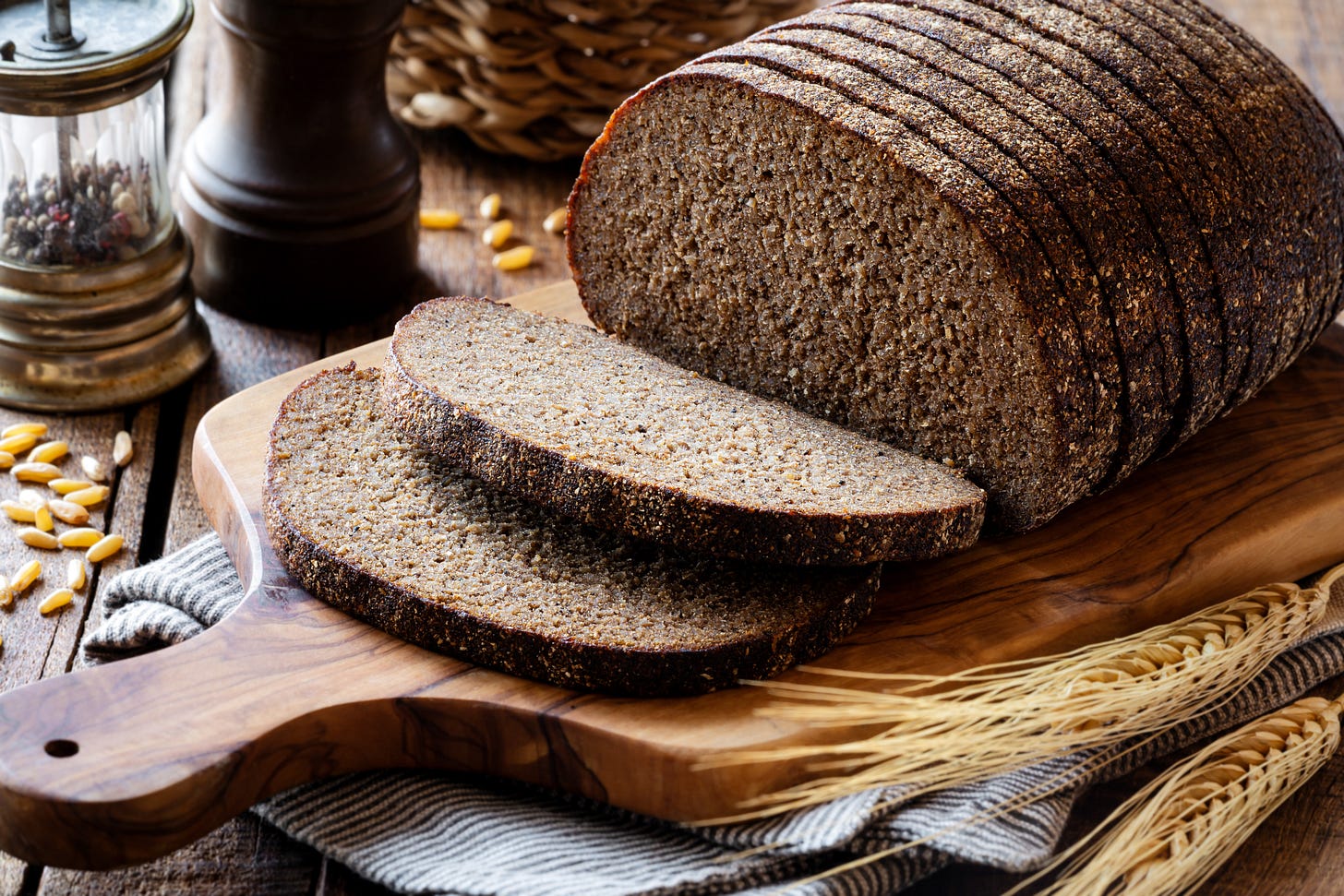If you enjoy the newsletter today, please forward it to someone who’d enjoy it, and tap the heart icon above, which will help me reach more readers. I appreciate your help, y’all!
This is the free edition of Smart Mouth. If you like it and want more like it in your inbox, consider subscribing.
I, for one, love these Twitter threads:
Potatoes baked in foil in The Boxcar Children #1.
Big-ass bags of cheap grocery store candy.

1) Hummus, salami and cheddar 2) Massaged kale, tomato jam, aaaaand cheddar.
Tabbouleh (and Lebanese Food) with Nicole Georges
A vegan who ate raw meat as a baby now finds joy in parsley.
Listen to Smart Mouth: iTunes • GooglePodcasts • Stitcher • Spotify • RadioPublic • TuneIn • Libsyn
Photo: kuvona
Russians and Their Rye
By Tatiana Claudy
Russian proverbs are full of odes to rye. “Rye bread is the head of everything.” “Buckwheat porridge is our mother and rye bread, our father.” The word itself gives away its importance: the Russian word for “rye” has the same root as the word “give birth,” and another word for rye, “zhito” (used in Southern Russia), has the same root as the word “life.” Moreover, the Russian word “khleb” (bread) used to exclusively mean rye bread.
Archaeological findings show that people in Russian have cultivated rye (Secále cereále) since 900. In 1080, Nestor the Chronicler documented the monks of the Kyiv Monastery of the Caves eating rye bread daily. As time passed, the popularity of this bread increased even more: in 1626, Tsar Michael Romanov’s decree on bread weight mentioned twenty-six varieties of rye bread.
Rye, being frost resistant, was especially suitable for the Northern regions and Siberia. For Russians, it was not only food but also a symbol of prosperity, hospitality, and familial unity. Mothers placed ears of rye in cribs to protect babies from evil spirits. Honored guests were welcomed with round loaves of rye bread and salt. The phrase “Let bread and salt be in your home!” expressed a wish for abundance. Additionally, to attract good luck, people started and finished their meals with slices of rye bread.
Russians, being used to this sour bread, suffered mentally and even physically without it. When, in 1736, during the Russo-Turkish war, Russian soldiers at the Crimean Peninsula had to eat wheat bread, many of them got sick. And a Russian traveler in 19th century France complained about how bad was his life in Paris with “nothing to eat” because he could not find rye bread.
“With an edge of bread there is a paradise under a spruce.” 🇷🇺
Consider signing up for a paid subscription. The money goes toward paying our contributors around the world and, starting in March, an extra edition every month. (If you like, you can choose any amount over $5 in the “supporter subscription plan” field.)
*If you would like to give less than $5, you can do that via Patreon, and it is very helpful and appreciated! You can give just $1/month, and you’ll get podcast episodes a week early.
This newsletter is edited by Katherine Spiers, host of the podcast Smart Mouth.
A TableCakes Production.
Want to contribute? Here are the submission guidelines.












